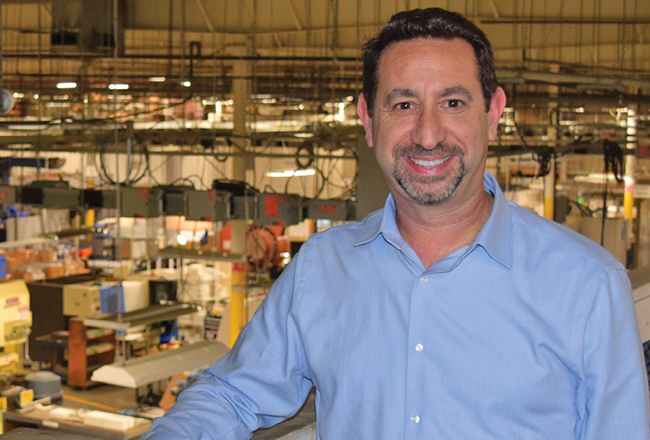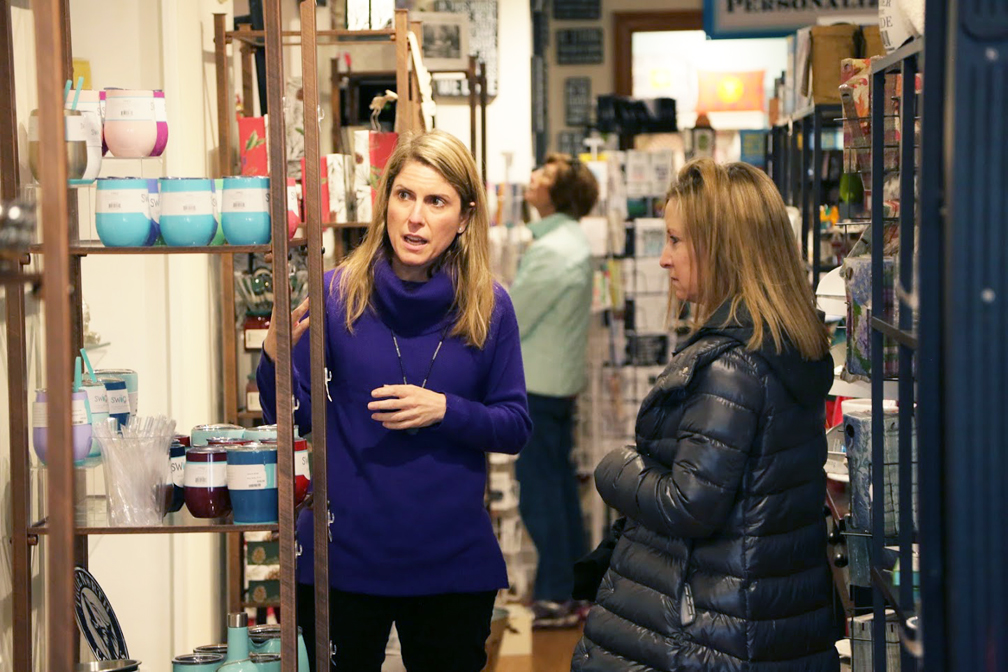
Last month, the Connecticut Business and Industry Association (CBIA) elected Chris DiPentima, president of Pegasus Manufacturing in Middletown, to a one-year term as chairman of its board of directors. In this edition of Suite Talk, Business Journal reporter Phil Hall speaks with DiPentima on where the state”™s economy and business community will be heading in the next 12 months.
As we move into 2019, what do you see as the growth industries within Connecticut”™s economy?
“No doubt, manufacturing. Under the Malloy administration, whether you liked him or not, he did some great things to support manufacturing. We saw an incredible explosion in the state with aerospace and defense, but even some of the commercial sectors have grown nicely. Outside of that, biotech seems to be a thriving industry, and we”™re going to see some growth in the construction side.”
The manufacturing sector is not as prominent in Fairfield County as it is elsewhere in the state.
“Bridgeport used to be a big manufacturing hub back in the day. There is some growing manufacturing in the Bridgeport area and New Haven and up the valley area to Waterbury, where you can see some really nice presence there. And you see the success of these businesses in their coordination with the academic world ”” Housatonic Community College and Naugatuck Valley Community College have really nice manufacturing programs.”
One of the complaints from many manufacturing companies in recent years has been the challenge in filling jobs. Are you still hearing that complaint?
“We probably got at it 10 to 15 years later than we should have. Connecticut gave up on manufacturing after the 2001-02 recession and the big recession in 2008-09, and we stopped investing in the apprenticeship programs and workers training. Under the Malloy administration, there was some really good reinvestments, but we still need to do more.
“There is a mix in the numbers. Some say there are 7,000 open manufacturing jobs right now, others say 13,000 open manufacturing positions right here in Connecticut. We need to tap into a lot of different sources and double down on apprenticeship.
“One of the things we definitely need to do is to continue to market it as a career. It is still viewed by some parents and guidance counselors ”” especially in the comprehensive schools ”” as dirty, dark and dingy. But if you walk on a floor anywhere in Connecticut, you”™ll see a lot of computer-controlled machines and floors that you can eat off. We”™ve done a great job at the technical high school and community college systems, but there are two untapped markets: the traditional comprehensive high schools where the kids are programmed into two- and four-year college degrees; and in the inner cities, where there”™s a big opportunity.”
How has President Trump”™s tariff policy impacted the state”™s manufacturing sector?
“It is raising our raw materials prices, which causes us to raise prices to our customers. It is not just hurting Connecticut, but the U.S. We would be seeing an unbelievable explosion in manufacturing beyond what we”™re currently experiencing if those tariffs weren”™t in place.
“Still, we”™re getting a lot of opportunities in the U.S. and here in Connecticut. There is a lot of reshoring going on, not because of pricing, but because work was placed in India and China and it was later found out they didn”™t have the skill set or infrastructure ready to handle that work, so they brought it back ”” and a lot of it was brought back to Connecticut.”
During last year”™s election, there was a lot of concern raised about bringing tolls back to Connecticut, either on the roads within the state or just by focusing on interstate truckers coming into the state. Where does the CBIA stand on that issue?
“By having it in-state, residents will see it as just another way of taxing them. The business community will probably see that as well, and that”™s one thing we”™re not looking for right now.
“There has been some conversation that there already is a Connecticut tax and a federal tax on the trucking industry. Instead of investing in infrastructure on those tolls, then maybe we should just raise the tax and avoid the whole cost of building tolls. And that cost would be on any trucker that comes through Connecticut ”” it is self-disclosed, where you write down how much mileage you have and are taxed on that mileage.
“However, if it is done on the trucking community, it would have less of an impact. But would it raise enough revenue?”
Another major issue from last year involved MGM Resorts International”™s efforts to change state law to allow a non-tribal entity to own and operate a casino. Where does the CBIA stand on changing the state”™s gaming law for nontribal casinos?
“We take that on a case-by-case basis. We would want to see what the administration or the legislature proposes and see how it affects our member companies in those areas ”” in this case, the Bridgeport area. The casinos have a good and a bad to them: they create jobs and have an impact on the economy, but some folks are concerned about what they do to the surrounding areas.”
Along the shoreline, there are increased efforts to expand Tweed New Haven Airport and Sikorsky Memorial Airport to accommodate more commercial flights. Is that something the CBIA backs?
“We would be supportive of more transportation, in general. If you go up to Bradley, it is doing really well nowadays. I know there is a plan to expand Bradley, but anything we can do to improve access into and out of Connecticut will be a plus for the state. And Tweed and Sikorsky are two untapped areas ”” a lot of people are driving down to Westchester for flights.”
Is the CBIA concerned that there will be a recession in 2019?
“No, I haven”™t heard anything about that. We feel good about the job numbers. We feel we are springboarding nicely into 2019. In the manufacturing industry sector, we”™re hearing nothing but even more business in 2019 ”” and we”™re hearing that businesses are already full and the only way they can handle more opportunities is to grow their capacities. These are things we didn”™t hear about in 2018. To see the private sector growth we saw in 2018, we”™re not concerned about a recession.”
But what could be a potential pothole facing the state”™s economy this year?
“How we address the budget shortfall. If we try to balance the budget on the shoulders of businesses with higher taxes and oppressive tolls and a significant increase in the minimum wage right off the bat instead of a phase-in, those things are a form of tax on the business ”” and that is the biggest fear going forward.”





















